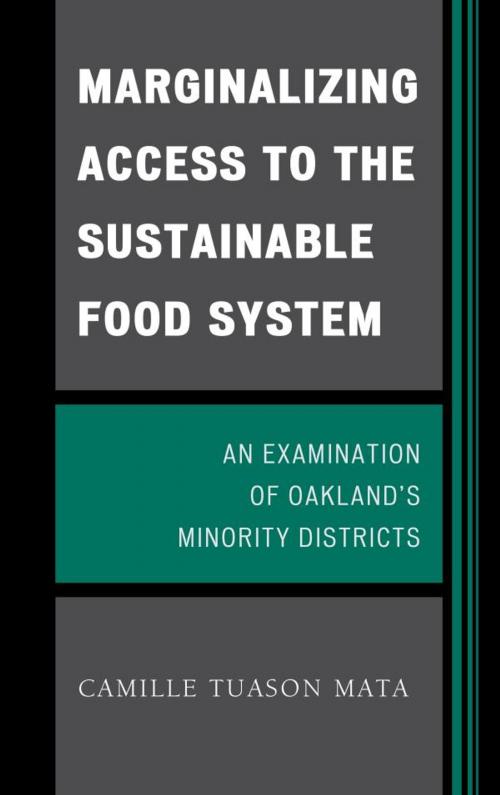Marginalizing Access to the Sustainable Food System
An Examination of Oakland's Minority Districts
Nonfiction, Social & Cultural Studies, Political Science, Politics, Regional Planning, Social Science, Sociology, Urban| Author: | Camille Tuason Mata | ISBN: | 9780761860549 |
| Publisher: | UPA | Publication: | September 12, 2013 |
| Imprint: | UPA | Language: | English |
| Author: | Camille Tuason Mata |
| ISBN: | 9780761860549 |
| Publisher: | UPA |
| Publication: | September 12, 2013 |
| Imprint: | UPA |
| Language: | English |
Marginalizing Access to the Sustainable Food System is a comprehensive analysis of the barriers and opportunities confronting minority communities’ ability to access healthy, fresh foods. It exposits the meaning of marginalization through several measurement indicators examined from the cross sections of history, space, and participation. These indicators include minority participation in agriculture, the delivery scope of CSA farms, the presence and location of farmer’s markets in the minority districts, the density of food stores, the availability of fresh produce in grocery stores in minority districts, the placement of urban food gardens in minority districts, and minority residents’ participation in the sustainable food system. Camille Tuason Mata applies this analysis to three minority districts in Oakland—Chinatown, Fruitvale, and West Oakland—and examines the patterns of marginalization in relation to the sustainable food system of the California Bay Area.
Marginalizing Access to the Sustainable Food System is a comprehensive analysis of the barriers and opportunities confronting minority communities’ ability to access healthy, fresh foods. It exposits the meaning of marginalization through several measurement indicators examined from the cross sections of history, space, and participation. These indicators include minority participation in agriculture, the delivery scope of CSA farms, the presence and location of farmer’s markets in the minority districts, the density of food stores, the availability of fresh produce in grocery stores in minority districts, the placement of urban food gardens in minority districts, and minority residents’ participation in the sustainable food system. Camille Tuason Mata applies this analysis to three minority districts in Oakland—Chinatown, Fruitvale, and West Oakland—and examines the patterns of marginalization in relation to the sustainable food system of the California Bay Area.















